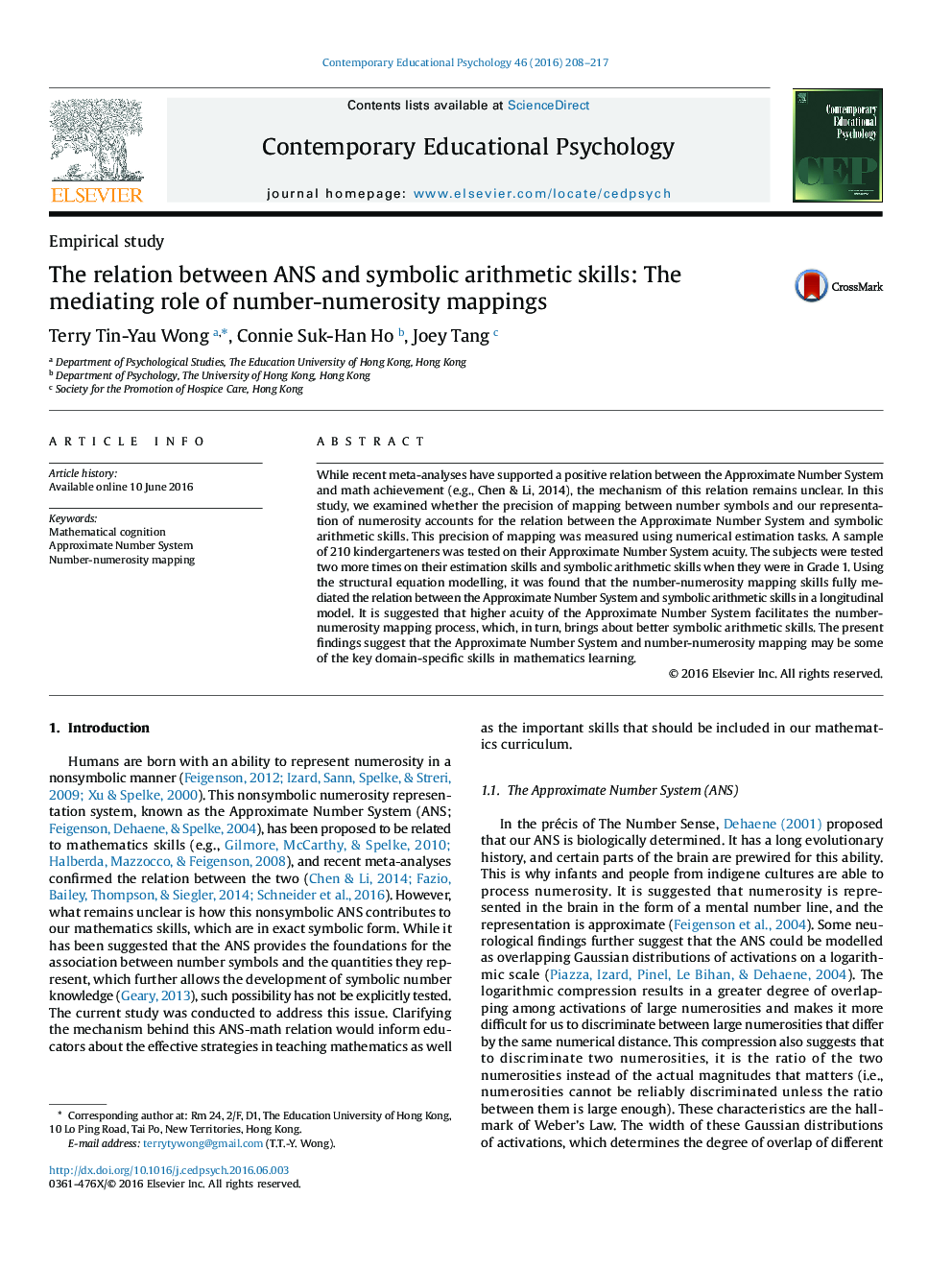| Article ID | Journal | Published Year | Pages | File Type |
|---|---|---|---|---|
| 6839808 | Contemporary Educational Psychology | 2016 | 10 Pages |
Abstract
While recent meta-analyses have supported a positive relation between the Approximate Number System and math achievement (e.g., Chen & Li, 2014), the mechanism of this relation remains unclear. In this study, we examined whether the precision of mapping between number symbols and our representation of numerosity accounts for the relation between the Approximate Number System and symbolic arithmetic skills. This precision of mapping was measured using numerical estimation tasks. A sample of 210 kindergarteners was tested on their Approximate Number System acuity. The subjects were tested two more times on their estimation skills and symbolic arithmetic skills when they were in Grade 1. Using the structural equation modelling, it was found that the number-numerosity mapping skills fully mediated the relation between the Approximate Number System and symbolic arithmetic skills in a longitudinal model. It is suggested that higher acuity of the Approximate Number System facilitates the number-numerosity mapping process, which, in turn, brings about better symbolic arithmetic skills. The present findings suggest that the Approximate Number System and number-numerosity mapping may be some of the key domain-specific skills in mathematics learning.
Related Topics
Social Sciences and Humanities
Psychology
Applied Psychology
Authors
Terry Tin-Yau Wong, Connie Suk-Han Ho, Joey Tang,
